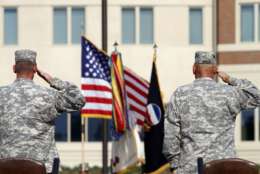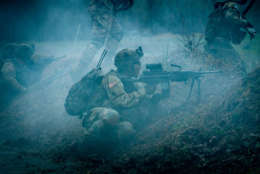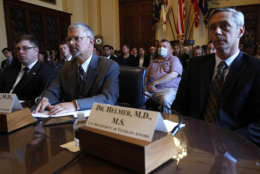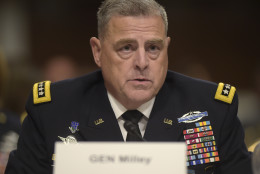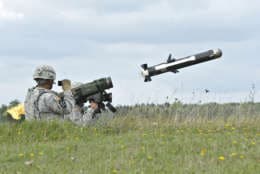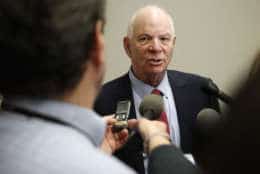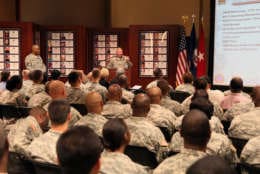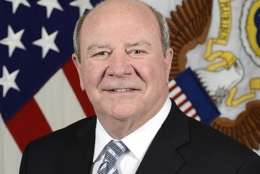Army
-
The new Army Futures Command is up and running in Austin. But realigning the service's modernization bureaucracy to operate in concert will take at least another year.
August 02, 2018 -
Ret. Col. Douglas Macgregor, an author and executive vice president of the consultancy Burke-Macgregor Group, said the service is merely tinkering around the edges.
July 27, 2018 -
U.S. officials say Army leaders will announce on Friday that they've chosen Austin as the location for a new command headquarters that will focus on how to modernize the service and prepare for future wars
July 12, 2018 -
With a November industry day, the Army is planning a year of pilots to test "smart city" technologies on its bases.
July 09, 2018 -
Special hiring authorities for personnel working in government-owned depots are set to expire in September.
July 04, 2018 -
In today's Federal Newscast, the State Department plans to spend almost $1 billion to modernize four key services under the Bureau of Consular Affairs.
July 03, 2018 -
After Agent Orange and Gulf War syndrome, the next set of maladies affecting service members is shaping up to be burn pits, toxic fires used to get rid of waste materials during the Iraq and Afghanistan wars.
June 27, 2018 -
As the Army shifts its focus from violent extremist organizations to near-peer adversaries per the national defense strategy, staying on top of emerging domains and technologies will be what keeps it in a position of dominance going into the future.
June 25, 2018 -
Gary Wang, the Army’s deputy CIO, retired after 35 years in government and Jerry Davis will retire from NASA Ames in July.
June 25, 2018 -
The Senate Appropriations Committee cleared a bill to give federal civilian employees a 1.9 percent pay raise in 2019.
June 22, 2018 -
The Army is preparing to award contracts based on the findings of the cross-functional team responsible for a better protected, more mobile tactical network and interoperability between forces.
June 21, 2018 -
One senator is worried Futures Command could harm small business.
June 15, 2018 -
In today's Federal Newscast, the Veterans Affairs Department publishes the ratings of its 130 community living centers.
June 14, 2018 -
The Army is nixing training it feels isn't helping readiness as a means of unburdening soldiers so they can spend more time with their families.
June 11, 2018 -
With environmental reviews holding up lingering projects, the Corps looks to fast-track the process.
June 06, 2018

